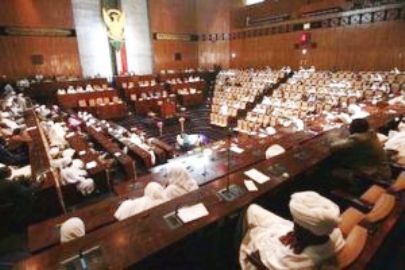Sudanese lawmakers approve bill granting Saudi Arabia immense agricultural lands
July 18, 2016 (KHARTOUM) – Sudanese parliament on Monday has approved an agricultural bill allowing Saudi Arabia to reform and cultivate one million feddans of land in eastern Sudan for 99 years.

Upper Atbara and Setait Dam, which is funded by Gulf financial institutions, aims to generate 320 Megawatts of power and provides irrigation water sufficient to cultivate one million feddans. The dam project would be inaugurated by early next year.
The feddan is a unit of area equivalent to 1.038 acres (0.42 ha).
According to the bill approved on Monday, Saudi Arabia would invest $10 billion in the first 10-year phase to build the infrastructure before moving to the next phase which would involve land reformation.
The bill provides that the Sudanese side must offer one million feddans of arable land in Upper Atbara and Setait and should give the Saudi side the right to use the dam’s water to irrigate the land according to the cropping pattern stated in the project study besides implementing laws and regulations to ensure the success of the project.
On the other hand, the bill requires the Saudi side to reform, develop, and grow the project’s land according to the appropriate mechanism.
It further provides that the two sides should agree on a timeframe to carry out the various phases of the project besides the funding and development processes.
While deliberating on the agreement last month, some MPs objected to the length of time for the project. They called to reduce it to 20-25 years and suggested to renegotiate the contract at the end of its term.
Also, the lawmakers criticized a clause providing to keep confidential the agreement and its terms, saying this confidentiality could jeopardize the rights of the landlords.
In November 2015, Sudan and Saudi Arabia signed in Riyadh four agreements that include a framework agreement to fund Kajabr, al- Sharik and Dal dams in northern Sudan and an agreement to cultivate one million feddans in Upper Atbara and Setait.
Sudan had previously expected that Saudi investments in the country will rise to $15 billion in 2016 compared to $11 billion in 2015.
Last April, the oil-dependent Kingdom revealed a long-term plan to transform itself into a diversified economy, with non-oil government revenues projected to increase six-fold by 2030.
Sudan’s foreign relations have witnessed a remarkable shift since last fall particularly in its rapprochement with the Arab Gulf states following years of chilly ties.
The east African nation participates with over 850 troops in the Saudi-led “Decisive Storm” against the Iranian-allied Houthi militants in Yemen.
The Sudanese military participation in the military campaign in Yemen and the Islamic alliance reconciled Bashir’s regime with the Saudi government, and marked the divorce with Iran.
(ST)
